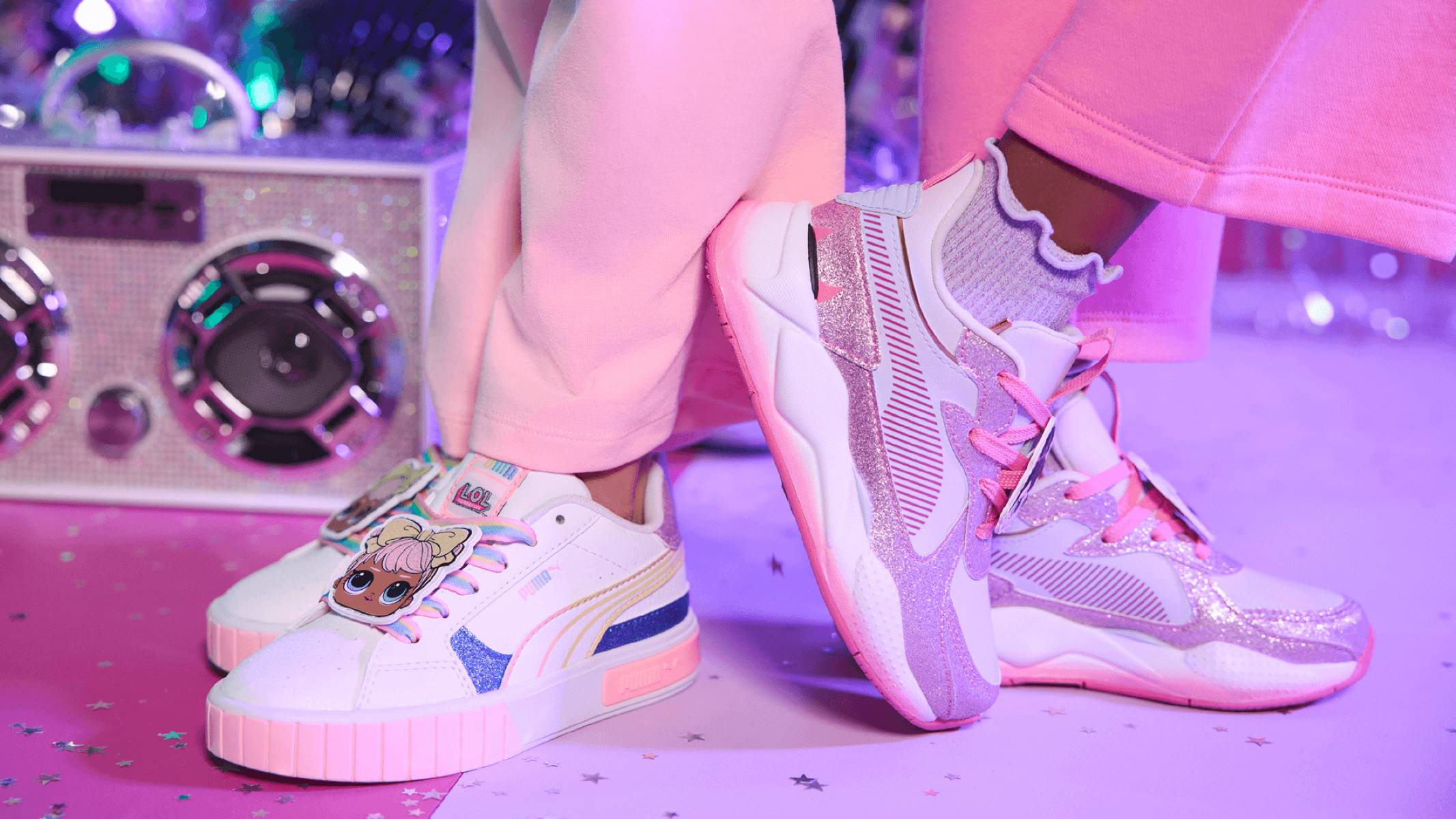Home>Lifestyle>The Surprising Reason New Balance Shoes Are Constantly Mocked


Lifestyle
The Surprising Reason New Balance Shoes Are Constantly Mocked
Published: February 14, 2024
Discover why New Balance shoes face constant mockery and how it affects the lifestyle and fashion industry. Uncover the surprising reasons behind the ridicule.
(Many of the links in this article redirect to a specific reviewed product. Your purchase of these products through affiliate links helps to generate commission for Regretless.com, at no extra cost. Learn more)
Table of Contents
Introduction
New Balance, a brand often associated with comfort, functionality, and durability, has long been a staple in the world of athletic footwear. However, despite its loyal following and reputation for quality craftsmanship, New Balance shoes have frequently found themselves at the center of mockery and ridicule within the sneaker community. This phenomenon raises an intriguing question: Why are New Balance shoes constantly the subject of derision, despite their enduring popularity and esteemed heritage?
To unravel this enigma, it's essential to delve into the brand's history, the evolution of sneaker culture, and the intriguing dynamics of fashion trends and marketing strategies. By exploring these facets, we can gain a deeper understanding of the underlying factors that have contributed to the polarizing perception of New Balance footwear.
The History of New Balance
Founded in 1906 as the New Balance Arch Support Company, the brand initially focused on manufacturing arch supports and orthopedic footwear to address the specific needs of individuals with foot-related issues. It wasn't until the mid-20th century that New Balance shifted its attention to athletic footwear, introducing its first running shoe in 1960. This marked the beginning of the brand's enduring commitment to producing high-quality performance footwear, setting it apart from competitors.
Throughout the 1960s and 1970s, New Balance gained traction among runners and athletes for its innovative approach to shoe design, which prioritized functionality and support. The brand's emphasis on creating shoes that catered to various foot shapes and sizes distinguished it from the one-size-fits-all approach adopted by many other athletic footwear manufacturers.
New Balance's dedication to craftsmanship and attention to detail became increasingly evident, earning the brand a reputation for producing durable, reliable, and comfortable footwear. This commitment to quality solidified New Balance's standing within the athletic community, leading to its widespread recognition as a trusted provider of performance-driven shoes.
As the brand continued to expand its product line, it remained steadfast in its mission to prioritize functionality and comfort. This unwavering commitment resonated with a diverse consumer base, including athletes, fitness enthusiasts, and individuals seeking supportive footwear for everyday wear.
The brand's iconic "N" logo became synonymous with superior craftsmanship and reliability, further cementing New Balance's position as a respected and enduring presence in the athletic footwear industry.
Over the years, New Balance has maintained its dedication to innovation and quality, continually refining its designs and incorporating advanced technologies to meet the evolving needs of its customers. This steadfast commitment to excellence has enabled New Balance to carve out a distinct identity in the competitive landscape of athletic footwear, earning the brand a loyal following and enduring appeal.
The rich heritage and unwavering dedication to quality craftsmanship have positioned New Balance as a revered and iconic brand, celebrated for its enduring commitment to producing footwear that seamlessly blends performance, comfort, and style.
The Rise of Sneaker Culture
The emergence of sneaker culture represents a significant societal shift, transcending the functional purpose of athletic footwear to become a powerful symbol of self-expression, identity, and cultural significance. This phenomenon, which gained momentum in the latter half of the 20th century, has profoundly influenced fashion, lifestyle, and consumer behavior, reshaping the perception of sneakers from mere athletic gear to coveted fashion statements.
Sneaker culture's ascent can be traced back to the 1970s and 1980s, a period characterized by the convergence of sports, music, and urban lifestyle. During this time, sneakers transcended their utilitarian role and became emblematic of individuality, style, and status. The proliferation of iconic sneaker silhouettes, coupled with the rise of hip-hop and streetwear, propelled sneakers into the realm of cultural symbols, garnering a fervent following among enthusiasts and collectors.
The 1980s witnessed the commercialization of sneaker culture, as athletic footwear evolved into a coveted commodity, coveted for its aesthetic appeal and cultural significance. Sneaker brands strategically aligned themselves with influential athletes, musicians, and celebrities, leveraging their star power to elevate sneakers into coveted fashion staples.
As sneaker culture continued to gain momentum, it became intertwined with themes of exclusivity, authenticity, and self-expression. Limited-edition releases, collaborative partnerships, and meticulously designed sneaker collaborations became pivotal elements of sneaker culture, fueling a fervent community of collectors and aficionados.
The advent of the internet and social media further accelerated the global reach and influence of sneaker culture, fostering vibrant online communities, forums, and marketplaces dedicated to sneakers. This digital landscape facilitated the exchange of knowledge, trends, and insights, fostering a sense of camaraderie and shared passion among enthusiasts worldwide.
Sneaker culture's impact transcends fashion and consumerism, permeating various facets of popular culture, art, and design. The allure of sneakers as a form of self-expression and cultural currency has propelled the phenomenon into the mainstream, shaping consumer behavior and redefining the intersection of fashion, sports, and lifestyle.
The rise of sneaker culture has underscored the profound influence of athletic footwear as a vehicle for storytelling, creativity, and personal identity, transcending its utilitarian origins to become a potent emblem of cultural significance and self-expression.
The "Dad Shoe" Trend
The "Dad Shoe" trend has emerged as a fascinating and polarizing phenomenon within the realm of sneaker culture, reshaping the perception of footwear aesthetics and triggering a nostalgic revival of chunky, retro-inspired designs. This trend, characterized by the resurgence of bulky, orthopedic-style sneakers reminiscent of those favored by dads in past decades, has captivated the fashion landscape, eliciting diverse reactions and sparking intriguing conversations within the sneaker community.
At the heart of the "Dad Shoe" trend lies a compelling juxtaposition of fashion sensibilities, blending elements of vintage nostalgia with contemporary style. The resurgence of these conspicuously chunky sneakers, often adorned with exaggerated soles and bold color palettes, represents a deliberate departure from the sleek, minimalist aesthetic that dominated the fashion scene in previous years. This departure reflects a deliberate embrace of unconventional, statement-making designs that challenge traditional notions of footwear aesthetics.
The "Dad Shoe" trend's appeal is rooted in its ability to evoke a sense of nostalgia and authenticity, tapping into a collective yearning for the familiar and the comforting. By harkening back to the iconic silhouettes of yesteryears, these retro-inspired sneakers evoke a sentiment of cherished memories and simpler times, resonating with individuals seeking to infuse their style with a touch of vintage charm.
Furthermore, the "Dad Shoe" trend represents a bold departure from conventional standards of beauty and elegance, embracing a distinctive form of anti-fashion that celebrates the unconventional and unapologetically defies traditional norms. This rebellion against conventional aesthetics underscores the trend's role as a symbol of individuality and self-expression, empowering wearers to embrace their unique style preferences and challenge prevailing fashion paradigms.
The resurgence of "Dad Shoes" has transcended mere fashion trends, permeating popular culture and serving as a testament to the cyclical nature of style. The trend's ability to captivate the attention of fashion enthusiasts and influencers alike underscores its enduring impact and its status as a potent cultural phenomenon that continues to redefine the boundaries of contemporary fashion.
In essence, the "Dad Shoe" trend represents a compelling fusion of nostalgia, individuality, and rebellion against conventional aesthetics, redefining the parameters of contemporary fashion and igniting thought-provoking conversations within the sneaker community. Its enduring appeal and capacity to provoke diverse reactions underscore its significance as a defining force in the ever-evolving landscape of sneaker culture.
The Influence of Marketing
The pervasive influence of marketing has played a pivotal role in shaping the perception and reception of New Balance shoes within the dynamic landscape of sneaker culture. Through strategic branding initiatives, targeted promotional campaigns, and collaborative partnerships, New Balance has navigated the intricacies of consumer preferences and cultural trends, exerting a profound impact on the brand's positioning and reception in the market.
New Balance's marketing endeavors have been characterized by a deliberate emphasis on authenticity, functionality, and heritage, aligning with the brand's longstanding commitment to quality craftsmanship and performance-driven footwear. This authentic narrative has resonated with consumers seeking genuine connections and meaningful brand experiences, fostering a sense of trust and loyalty towards New Balance.
The brand's strategic collaborations with influential figures, such as athletes, artists, and designers, have served as powerful conduits for amplifying New Balance's cultural relevance and expanding its reach. By aligning with individuals who embody the brand's values and resonate with diverse audiences, New Balance has effectively leveraged the aspirational appeal of these partnerships to cultivate a distinct identity and narrative that transcends traditional marketing tropes.
Moreover, New Balance's marketing initiatives have deftly tapped into the zeitgeist of sneaker culture, adeptly navigating the nuances of evolving fashion trends and consumer preferences. By introducing compelling storytelling, engaging digital content, and immersive brand experiences, New Balance has fostered a sense of community and inclusivity, forging meaningful connections with consumers and enthusiasts alike.
The brand's adept navigation of social media platforms and digital channels has further bolstered its visibility and engagement, enabling New Balance to actively participate in ongoing conversations within the sneaker community. Through strategic content creation, interactive campaigns, and responsive engagement with consumers, New Balance has cultivated a vibrant online presence, fostering a sense of accessibility and relevance in an increasingly interconnected digital landscape.
In essence, New Balance's nuanced and authentic approach to marketing has been instrumental in shaping the brand's perception and resonance within sneaker culture. By prioritizing genuine connections, meaningful storytelling, and cultural relevance, New Balance has effectively positioned itself as a formidable player in the ever-evolving realm of athletic footwear, harnessing the power of marketing to cultivate enduring relationships with consumers and enthusiasts worldwide.
Conclusion
In conclusion, the enigmatic phenomenon surrounding the constant mockery of New Balance shoes within the sneaker community is a multifaceted interplay of historical legacy, evolving sneaker culture, fashion trends, and the influential force of marketing. The enduring appeal of New Balance shoes, characterized by their unwavering commitment to quality craftsmanship, functionality, and authenticity, stands in stark contrast to the polarizing reception they often receive.
The brand's rich heritage, dating back to its origins as an arch support company and its subsequent evolution into a renowned athletic footwear manufacturer, underscores the depth of its legacy and dedication to addressing the diverse needs of consumers. New Balance's steadfast commitment to innovation and quality has positioned it as a trusted purveyor of performance-driven footwear, earning the brand a loyal following and enduring appeal.
The rise of sneaker culture, marked by its transformation from utilitarian athletic gear to coveted fashion statements, has profoundly influenced the perception of sneakers as cultural symbols and vehicles for self-expression. This cultural shift has engendered a complex tapestry of trends, including the "Dad Shoe" phenomenon, which challenges conventional aesthetics and redefines the parameters of contemporary fashion.
Furthermore, the influence of marketing has played a pivotal role in shaping the reception of New Balance shoes within the dynamic landscape of sneaker culture. The brand's strategic branding initiatives, collaborative partnerships, and authentic storytelling have contributed to its cultural relevance and resonance, fostering meaningful connections with consumers and enthusiasts alike.
In essence, the constant mockery of New Balance shoes within the sneaker community encapsulates a nuanced interplay of historical legacy, evolving cultural dynamics, and the influential force of marketing. While the brand's enduring commitment to quality and functionality remains unwavering, its reception within the ever-evolving landscape of sneaker culture reflects the intricate interplay of diverse factors that shape consumer perceptions and preferences.
As New Balance continues to navigate the complexities of sneaker culture and fashion trends, its legacy of authenticity, craftsmanship, and innovation serves as a steadfast anchor in an industry characterized by perpetual evolution and shifting paradigms. The enduring allure of New Balance shoes, juxtaposed against the complexities of contemporary sneaker culture, underscores the brand's enduring significance and its capacity to provoke thought-provoking conversations within the realm of athletic footwear.














